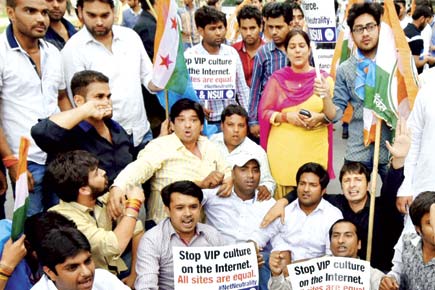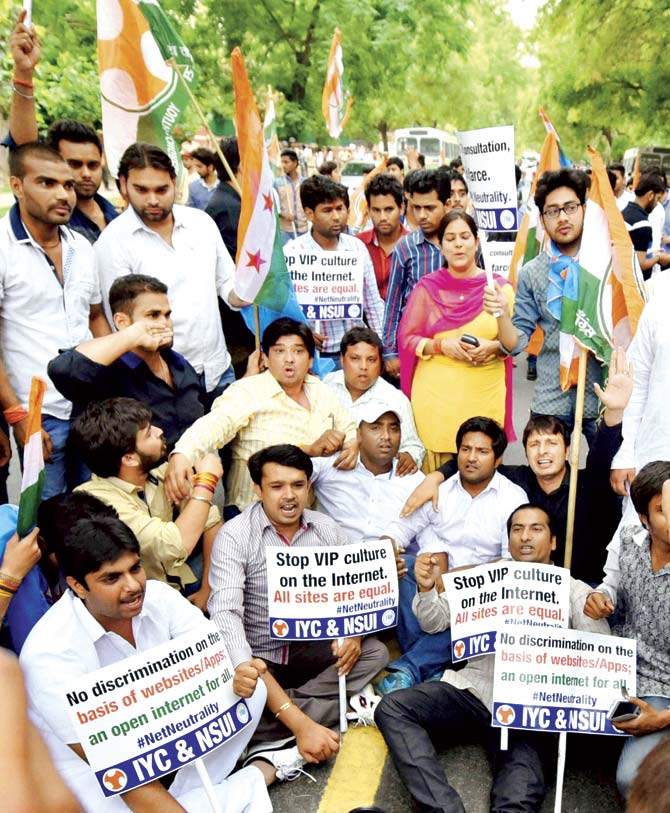Imagine that you are on a spanking new highway. You are stopped about 100 metres after paying Rs 150 as toll and asked to pay Rs 300 extra for driving at over 100 kilometres per hour in the fast lane

 Imagine that you are on a spanking new highway. You are stopped about 100 metres after paying Rs 150 as toll and asked to pay Rs 300 extra for driving at over 100 kilometres per hour in the fast lane. If, however, you want to continue driving at 60 kmph in the middle or left lane you can go ahead. Now imagine that the ability to drive at over 100 kmph will mean you shave off 2-3 hours of your journey. Would you pay that extra money? And if you can afford to do it, what about all the others who cannot? Should they be forced to go slow because you have paid to go fast?
Imagine that you are on a spanking new highway. You are stopped about 100 metres after paying Rs 150 as toll and asked to pay Rs 300 extra for driving at over 100 kilometres per hour in the fast lane. If, however, you want to continue driving at 60 kmph in the middle or left lane you can go ahead. Now imagine that the ability to drive at over 100 kmph will mean you shave off 2-3 hours of your journey. Would you pay that extra money? And if you can afford to do it, what about all the others who cannot? Should they be forced to go slow because you have paid to go fast?

Members of the National Students Union of India and Indian Youth Congress marched in support of net neutrality in New Delhi yesterday. Pic/PTI
ADVERTISEMENT
That is the conundrum that net neutrality presents. The pipelines that carry information have been build by various Internet service providers (ISPs) cable, telecom and broadband firms. They charge you a monthly fee to access their pipes. Can the ISP now start demanding that the websites or TV channels they give access to start paying them to reach consumers faster? That the packets of data that they transfer be segregated into heavy, medium and light and be priced differently? Or that they could slow down the transport of some packets of data if a content owner pays them to do it. That is at the heart of the debate on whether ISPs should be allowed to charge users or content firms extra for carrying certain types on content.
Some time in 2003, the idea that ISPs should treat all data passing through their pipes or wireless pathways equally was floated. However, at various points ISPs have tried to change this ‘norm’. In 2008, the Federal Communications Commission, the US regulator, upheld a complaint against Comcast, the largest cable company in the US, for slowing down users’ access to BitTorrent, a file-sharing software (cable companies are the biggest ISPs in the US). The case then ballooned into a big debate on net neutrality. Eventually the courts ruled in favour of Comcast but noted that the judgement was not against net neutrality and they stood for it. The FCC started a debate around it and got four million ayes in favour of net neutrality. It ruled in favour of it in February this year.
In Europe, however, regulators believe that net neutrality takes away any incentive for ISPs to invest in upgrading their networks. And the popular view is that the Googles and YouTubes and anyone whose traffic is huge online should pay ISPs the equivalent of a carriage fee.
In India, when Airtel Zero launched with the promise of free access to apps for which data charges are being paid by the app firms, there was a huge hue and cry. Plus, there was a Telecom Regulatory Authority of India (TRAI) paper on over-the-top or OTT services in late March this year. It seeks to discuss preferential pricing of data access. To counter this, there have been a series of moves from people who support the idea of an open and free Internet. There is a very well-made video from AIB and there are umpteen endorsements for net neutrality from celebrities and politicians. More than 4 lakh people have already written to the TRAI in favour of net neutrality.
They are pro-net neutrality because they believe that the Internet’s openness makes it an equaliser across geographies, social strata and all other variables that inhibit opportunities for education, doing business, accessing information in the real world. The surge in entrepreneurship alone is a big reason, points out the pro-camp. And much of this equalisation has been profitable for the ISPs, too. According to the TRAI paper, apps led to a more than doubling of data usage and data revenues for telecom firms in 2014, over 2013.
Therefore, using the highway as you see fit faster or slower after you have paid the initial toll should be your decision, not that of the people who built the road. After it is built, it becomes a public utility
The writer is a media specialist and author. Follow her on Twitter at https://twitter.com/vanitakohlik
 Subscribe today by clicking the link and stay updated with the latest news!" Click here!
Subscribe today by clicking the link and stay updated with the latest news!" Click here!







